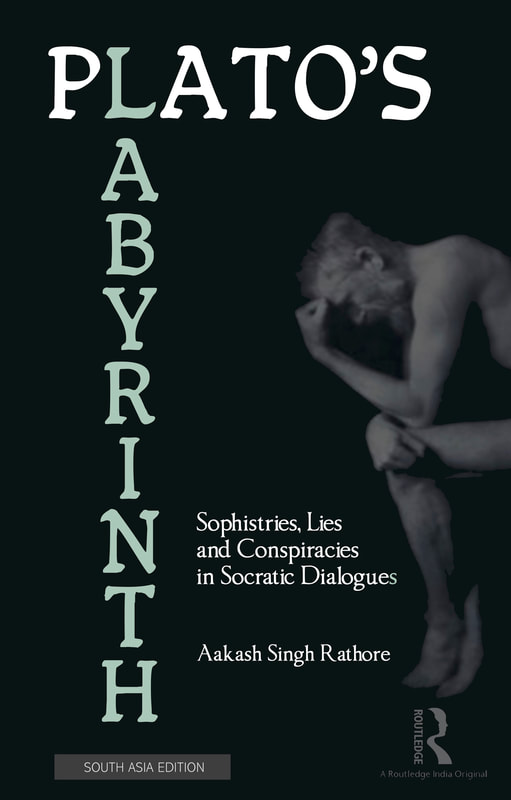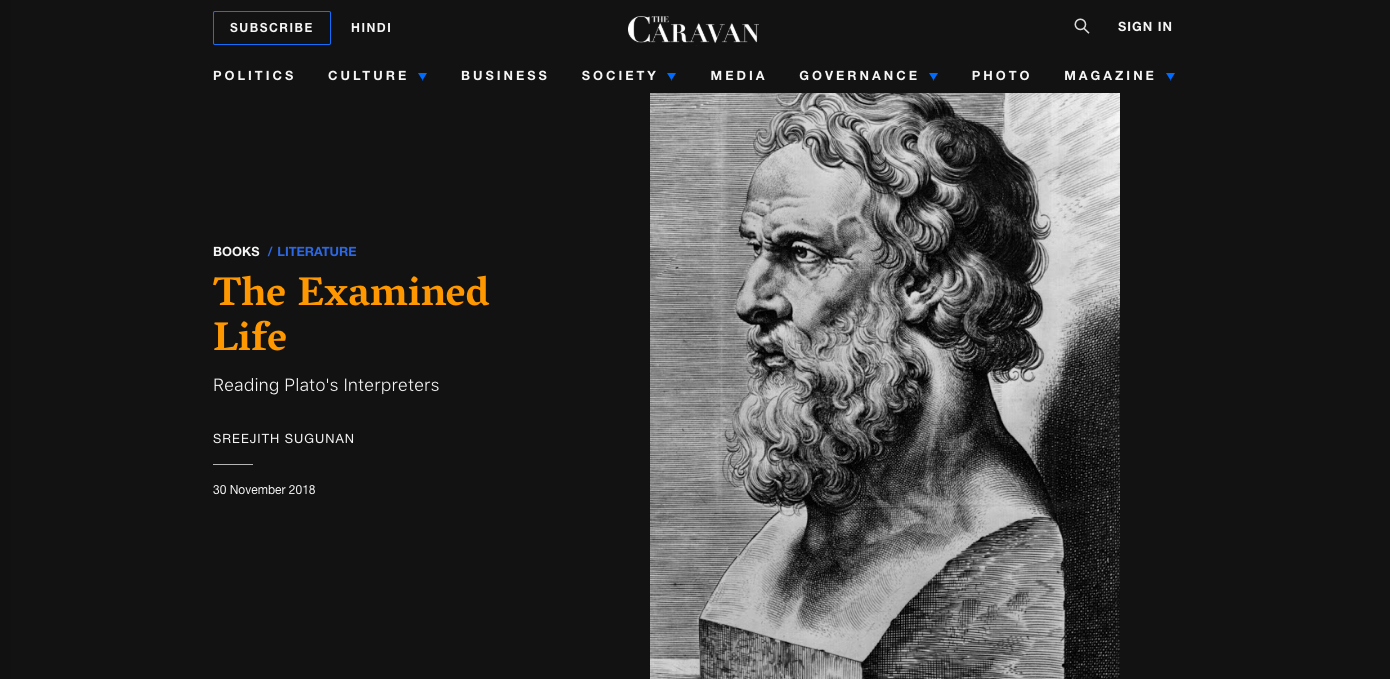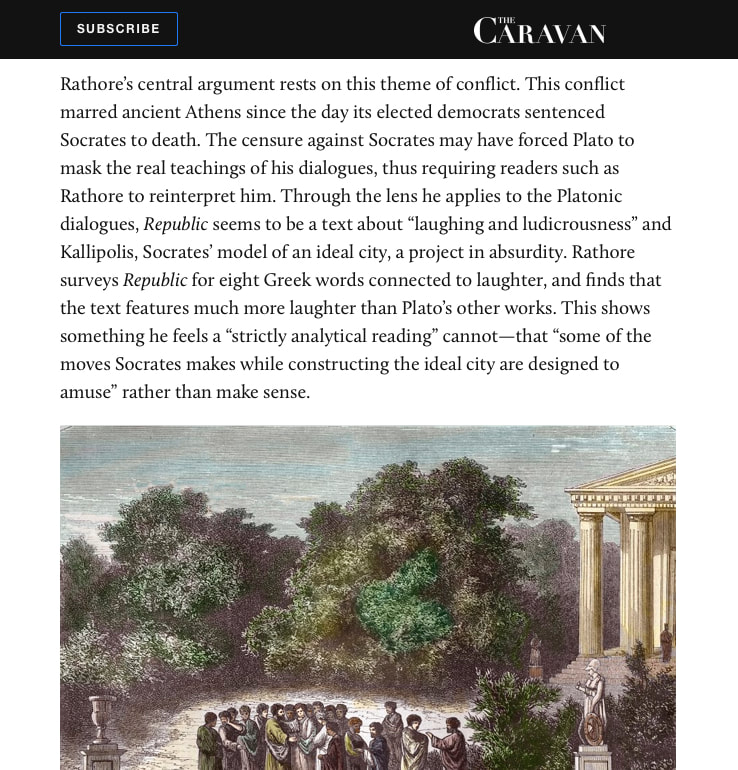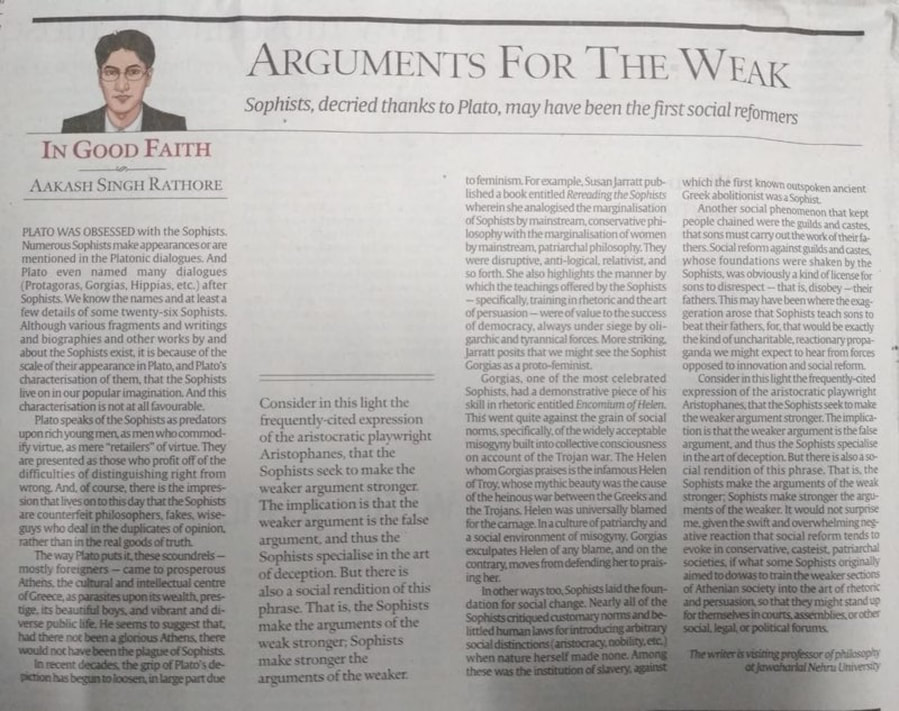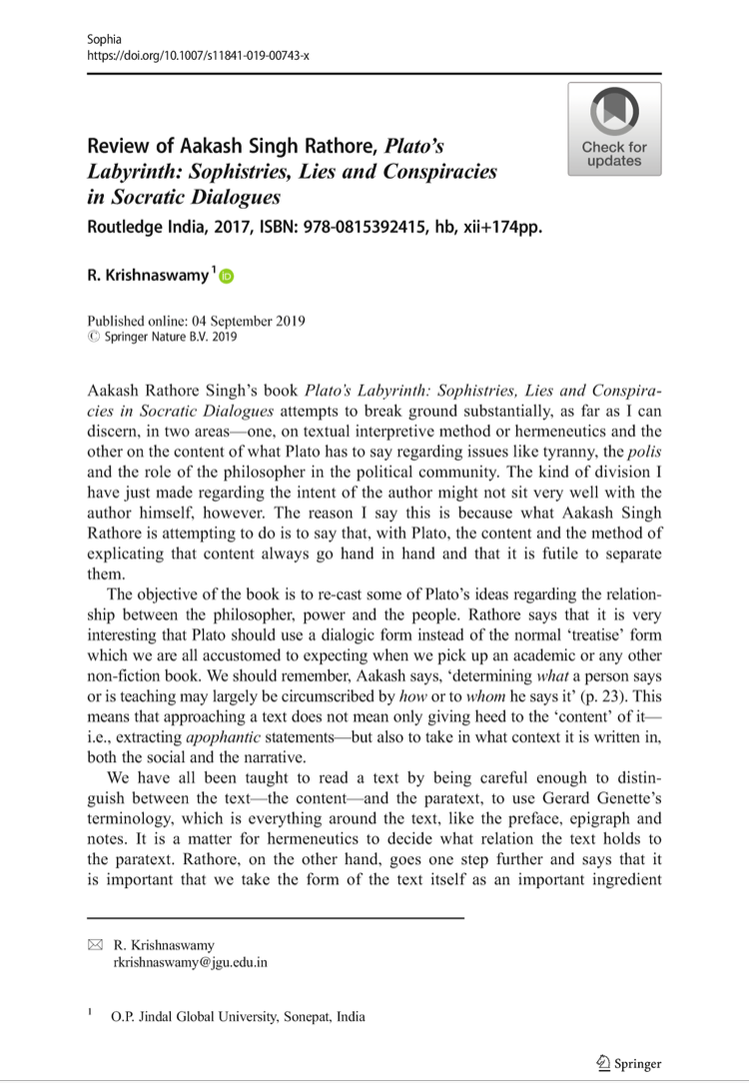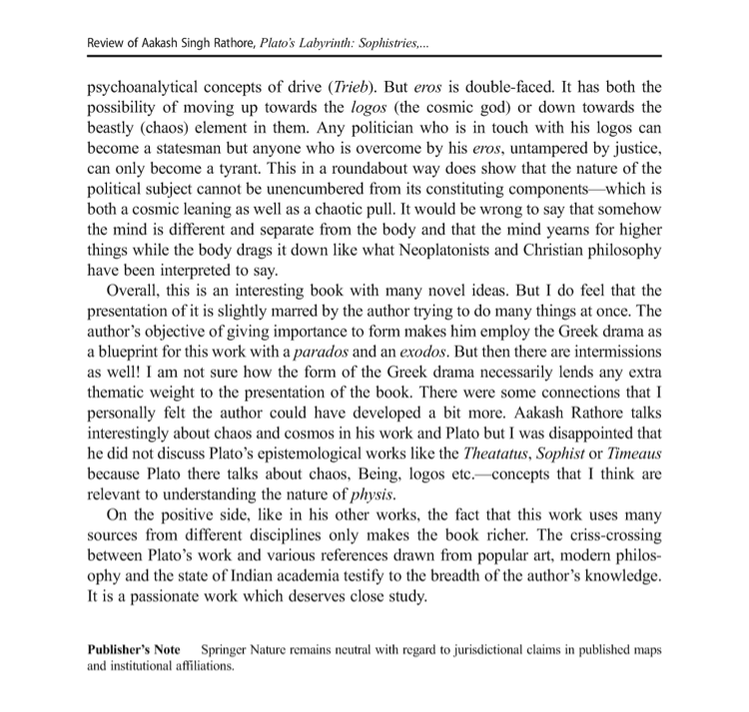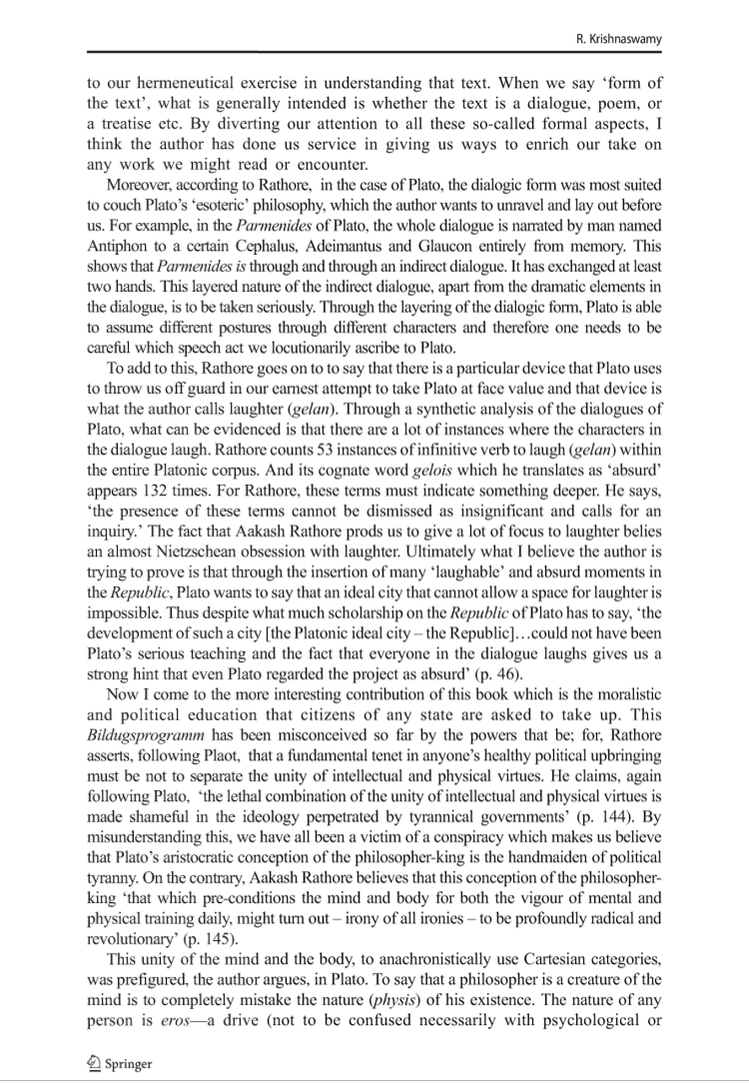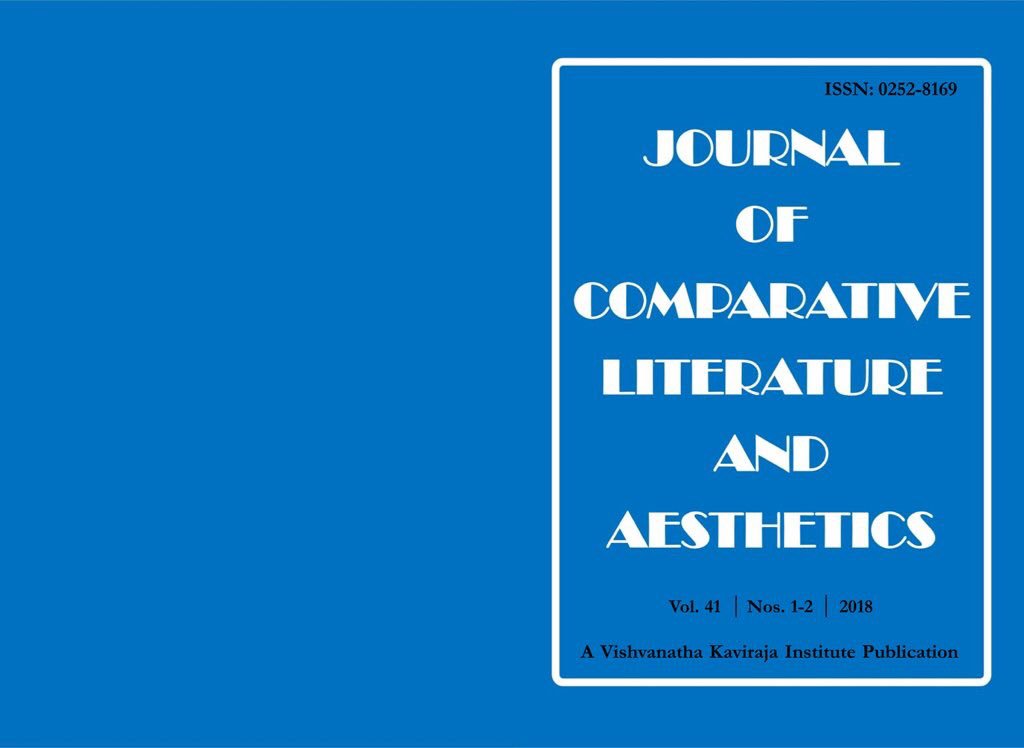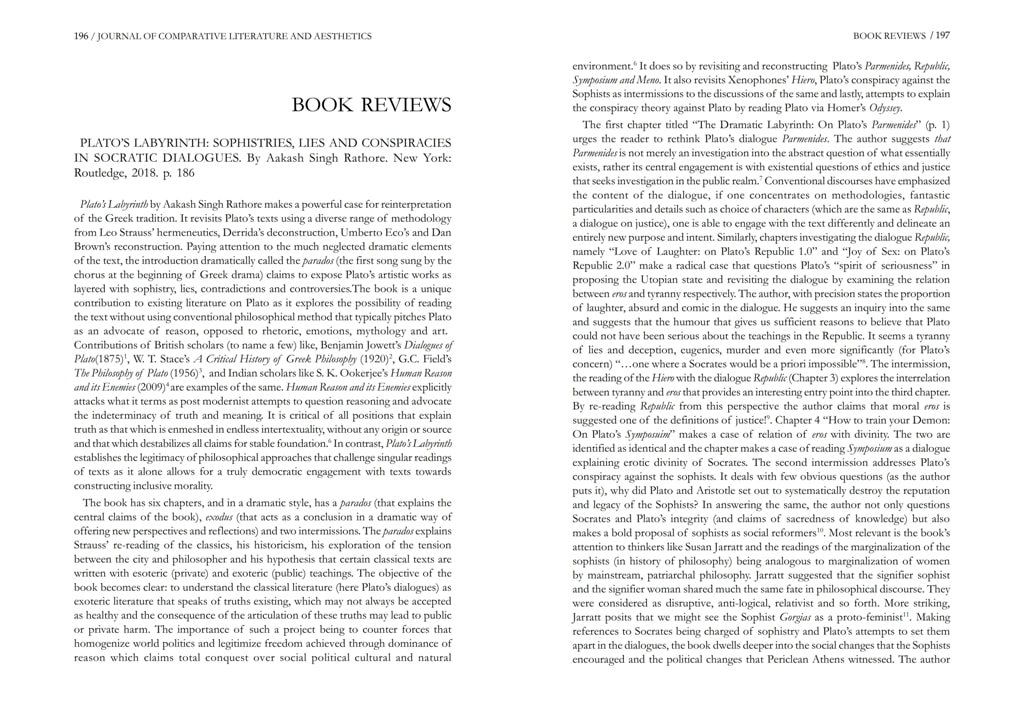- Home
-
Books
- Becoming Babasaheb
- Ambedkar’s Preamble
- Vision for a Nation
- A Philosophy of Autobiography: Body & Text
- Dalit Feminist Theory
- B.R. Ambedkar: The Quest for Justice
- Plato’s Labyrinth
- Hegel's India
- Wronging Rights?
- Hegel's India - Reviews
- Indian Political Theory
- Global Justice
- Rethinking Indian Jurisprudence
- Indian Political Thought
- Discoursing the Post-Secular
- Buddhism and the Contemporary World
- The Future of Political Theology
- From Political Theory to Political Theology
- B. R. Ambedkar: The Buddha and His Dhamma
- India Wins Freedom
- Eros Turannos
- Reading Hegel
- The Complete Indian Wine Guide
- Ironman & Martial Arts
- Media Articles & Appearances
- Publications
- Short Courses
- Talks, Lectures, Conferences, Workshops
- Book Series
- Videos & Podcasts
- Mind & Muscle - Quora Spaces
- Contact
‘Just as some mysterious force compels the author of Plato's Labyrinth to train for triathlons in the crowded and dangerous labyrinths of New Delhi, so too does this same force compel him, as one of India’s foremost political theorists, to guide his readers through the labyrinths of Plato’s dialogues. What purpose do these two pursuits share? Aakash Singh Rathore refers to the conspiracy in universities that prevents students from understanding fully the radical and erotic nature of Platonic philosophy. This book charms his readers just as Socrates charmed many Athenians to show that philosophizing is not a useless luxury but the most profound form of liberation available to humanity.’
John von Heyking, Professor, Department of Political Science, University of Lethbridge, Canada, and author of The Form of Politics: Aristotle and Plato on Friendship.
John von Heyking, Professor, Department of Political Science, University of Lethbridge, Canada, and author of The Form of Politics: Aristotle and Plato on Friendship.
‘Aakash Singh Rathore ingeniously reinscribes Plato’s work into our own day by revealing its ancestry in Socratic argument as much as Sophistic rhetoric. He challenges textbook orthodoxies in evoking authors and artists from Strauss, Xenophon, Nietzsche and Shaw to Homer, Rodin and Myron. Deploying drama, conspiracies and humor, Rathore’s creative rereading of Plato is rigorously grounded in texts while exploring their esoteric unconscious. Consequently, he establishes intellectual freedom as egalitarian precisely because it is won through processes of indirect communication, intense physical labor and immense responsibility.’
Kanchana Mahadevan, Professor, Department of Philosophy, University of Mumbai, India, and author of Between Femininity and Feminism: Colonial and Postcolonial Perspectives on Care
‘This study of Plato’s Socratic writings, interpreted from the viewpoint of their dialogue form, and carried out by means of techniques of literary analysis inspired by contemporary philosophers, brings to light an entire network of intrigues beneath the surface of Plato’s narration. This original and provocative work seeks to unravel the tangled trail of intrigues. The book is filled with twists and surprises.’
Luc Brisson, Co-President of the International Plato Society; Director of Research, Centre National de la Recherche Scientifique, Paris; and author of Plato the Myth Maker
Luc Brisson, Co-President of the International Plato Society; Director of Research, Centre National de la Recherche Scientifique, Paris; and author of Plato the Myth Maker
‘With easy erudition Aakash Singh Rathore draws an enigmatic and entertaining thread through the complex oeuvre of a philosopher whose broad shoulders hold the edifice of western thought. Plato’s Labyrinth challenges many of our settled convictions on the nature of philosophy.’
Vijay Tankha, former Professor and Head, Department of Philosophy, St. Stephen’s College, University of Delhi, India, and author of Ancient Greek Philosophy
|
Plato’s Labyrinth
Sophistries, Lies and Conspiracies in Socratic Dialogues Contents Parodos: Esoteric Writing, Sophistries, Lies and Conspiracies 1. The Dramatic Labyrinth: On Plato's Parmenides, page 1 2. The Love of Laughter, on Plato's Republic 1.0 First Intermission: Xenophon's Hiero: A Straussian Rendition 3. The Joy of Sex: On Plato's Republic 2.0 4. How to Train Your Demon: On Plato's Symposium Second Intermission: Plato's Conspiracy Against the Sophists 5. The Morality of the Master: On Plato's Meno 6. Reading Plato through Homer’s Odyssey: A Conspiracy Theory Exodos: Where Do We Go from Here? |
|
This original and stimulating study of Plato's Socratic dialogues rereads and reinterprets Plato's writings in terms of their dialogical or dramatic form.
Taking inspiration from the techniques of Umberto Eco, Jacques Derrida, and Leo Strauss, Aakash Singh Rathore presents the Socratic dialogues as labyrinthine texts replete with sophistries and lies that mask behind them important philosophical and political conspiracies.
Plato's Labyrinth argues that these conspiracies and intrigues are of manifold kinds – in some, Plato is masterminding the conspiracy; in others, Socrates, or the Sophists, are the victims of the conspiracies. With supplementary forays ('intermissions') into the world of Xenophon and the Sophists, the complex and evolving series of overlapping arguments that the book lays out unfold within an edgy and dramatic narrative.
Presenting innovative readings of major texts – Plato's Parmenides, Republic,
Symposium and Meno as also Homer's Odyssey – this work is an ambitious attempt to synthesize philological, political, historical and philosophical research into a classical text-centred study that is at once of urgent contemporary relevance.
Taking inspiration from the techniques of Umberto Eco, Jacques Derrida, and Leo Strauss, Aakash Singh Rathore presents the Socratic dialogues as labyrinthine texts replete with sophistries and lies that mask behind them important philosophical and political conspiracies.
Plato's Labyrinth argues that these conspiracies and intrigues are of manifold kinds – in some, Plato is masterminding the conspiracy; in others, Socrates, or the Sophists, are the victims of the conspiracies. With supplementary forays ('intermissions') into the world of Xenophon and the Sophists, the complex and evolving series of overlapping arguments that the book lays out unfold within an edgy and dramatic narrative.
Presenting innovative readings of major texts – Plato's Parmenides, Republic,
Symposium and Meno as also Homer's Odyssey – this work is an ambitious attempt to synthesize philological, political, historical and philosophical research into a classical text-centred study that is at once of urgent contemporary relevance.
|
The Philosopher in Plato’s Labyrinth
Youth Ki Awaaz
Review by Nachi Keta
"Above is the most important esoteric teaching of Plato’s Labyrinth: learn how to read first. It can be a guidebook to potential philosophers on ‘how to do philosophy’."
Youth Ki Awaaz
Review by Nachi Keta
"Above is the most important esoteric teaching of Plato’s Labyrinth: learn how to read first. It can be a guidebook to potential philosophers on ‘how to do philosophy’."
Proudly powered by Weebly
